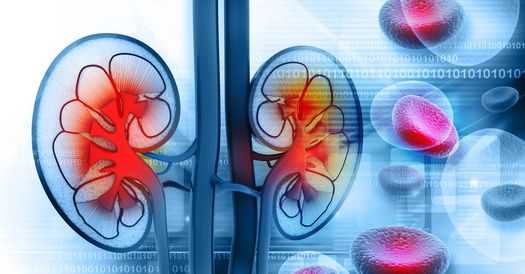
Does Chronic Kidney Disease Affect Blood Sugar Levels?

Introduction
Chronic kidney disease (CKD) is a progressive condition that diminishes the kidneys' ability to function effectively. These vital organs are responsible for filtering waste products from the blood and regulating various metabolic processes, including blood sugar levels. Therefore, it's natural to wonder how CKD might impact blood sugar control. In this article, we will delve into the intricacies of this relationship, addressing common questions and providing valuable information for individuals living with CKD or concerned about their blood sugar levels.
The Basics of Chronic Kidney Disease
Before we explore the connection between CKD and blood sugar levels, let's establish a fundamental understanding of chronic kidney disease itself.
What is Chronic Kidney Disease?
Chronic Kidney Disease, often abbreviated as CKD, refers to the gradual deterioration of kidney function over time. This condition is typically categorized into five stages, with stage 1 being the mildest and stage 5 representing kidney failure. CKD can result from various underlying causes, such as high blood pressure, diabetes, and certain genetic factors.
Stages of Chronic Kidney Disease
1. Stage 1 CKD: Kidney damage with normal or increased filtration rate.
2. Stage 2 CKD: Mild reduction in filtration rate.
3. Stage 3 CKD: Moderate reduction in filtration rate.
4. Stage 4 CKD: Severe reduction in filtration rate.
5. Stage 5 CKD: Kidney failure, requiring dialysis or transplantation.
Now that we've established the foundation, let's delve into the connection between CKD and blood sugar levels.
The Link Between CKD and Blood Sugar Levels
How Does CKD Affect Blood Sugar Levels?
CKD can influence blood sugar levels through various mechanisms, making it a significant concern for individuals with both conditions. Here's how CKD can affect blood sugar levels:
1. Insulin Resistance: CKD can lead to insulin resistance, a condition where the body's cells don't respond effectively to insulin. This can result in elevated blood sugar levels, a hallmark of diabetes.
2. Medication Interactions: Many medications commonly prescribed to manage CKD, such as certain diuretics, can affect blood sugar levels. It's essential for individuals with CKD to work closely with their healthcare providers to monitor and adjust their medications as needed.
3. Impaired Glucose Regulation: CKD can disrupt the body's ability to regulate glucose effectively, leading to fluctuations in blood sugar levels.
4. Inflammation: Chronic inflammation often accompanies CKD, and this inflammation can contribute to insulin resistance and elevated blood sugar levels.
Managing Blood Sugar Levels with CKD
Managing blood sugar levels when you have CKD requires a multidisciplinary approach. Here are some essential tips:
- Follow a CKD-friendly diet that takes into account your blood sugar levels and kidney health.
- Monitor your blood sugar levels regularly.
- Engage in regular physical activity to improve insulin sensitivity.
- Collaborate closely with your healthcare team, including nephrologists and endocrinologists, to optimize your treatment plan.
To book an appointment with SS Uro Care | Dr. Shiva Kumar | Urology Hospital Bangalore or more please, call us at 9480311799 or visit our website HERE; https://www.ssurocare.com/
Conclusion
In conclusion, chronic kidney disease can indeed affect blood sugar levels, creating a complex interplay between these two health conditions. Understanding this relationship is crucial for individuals with CKD and diabetes, as it can inform their treatment and lifestyle choices. By working closely with healthcare professionals, making necessary lifestyle changes, and staying informed, individuals can better manage both CKD and blood sugar levels, ultimately leading to improved overall health and well-being.
FAQs
Can CKD Cause Diabetes?
CKD itself does not cause diabetes, but it can increase the risk of developing diabetes due to factors like insulin resistance and medication interactions.
How Can I Prevent Blood Sugar Issues with CKD?
Preventing blood sugar issues with CKD involves lifestyle modifications, including a balanced diet, regular exercise, and adherence to prescribed medications.
Should I Be Concerned About CKD If I Have Diabetes?
Yes, individuals with diabetes should be vigilant about monitoring kidney function and blood sugar levels, as the two conditions can exacerbate each other.
Can CKD Be Reversed?
In some cases, early-stage CKD can be managed and potentially reversed through lifestyle changes and medical interventions. However, advanced stages of CKD may require dialysis or transplantation.
What Foods Should I Avoid with CKD and Diabetes?
Individuals with CKD and diabetes should limit their intake of processed foods, high-sugar items, and foods high in phosphorus and potassium. A registered dietitian can provide personalized dietary recommendations.
Is There a Cure for CKD?
While there is no cure for CKD, early detection and proper management can slow its progression and improve quality of life.
Author Bio
Article Comments
No Comments!
At present there are zero comments on this article.
Why not be the first to make a comment?
Similar Articles
Search Pages
User Upgrade
account to full use of editor,
Including hyperlinks
Article Categories
There are zero sub-categories in this parent category.
There are zero sub-categories in this parent category.

















